A Week of Celebratory Firsts
The Abdominal Transplant Center performs its first kidney transplant surgery and altruistic donor surgery, all in the same week
Reviewed by: Nicole Turgeon, MD, FACS
Written by: Ashley Lawrence
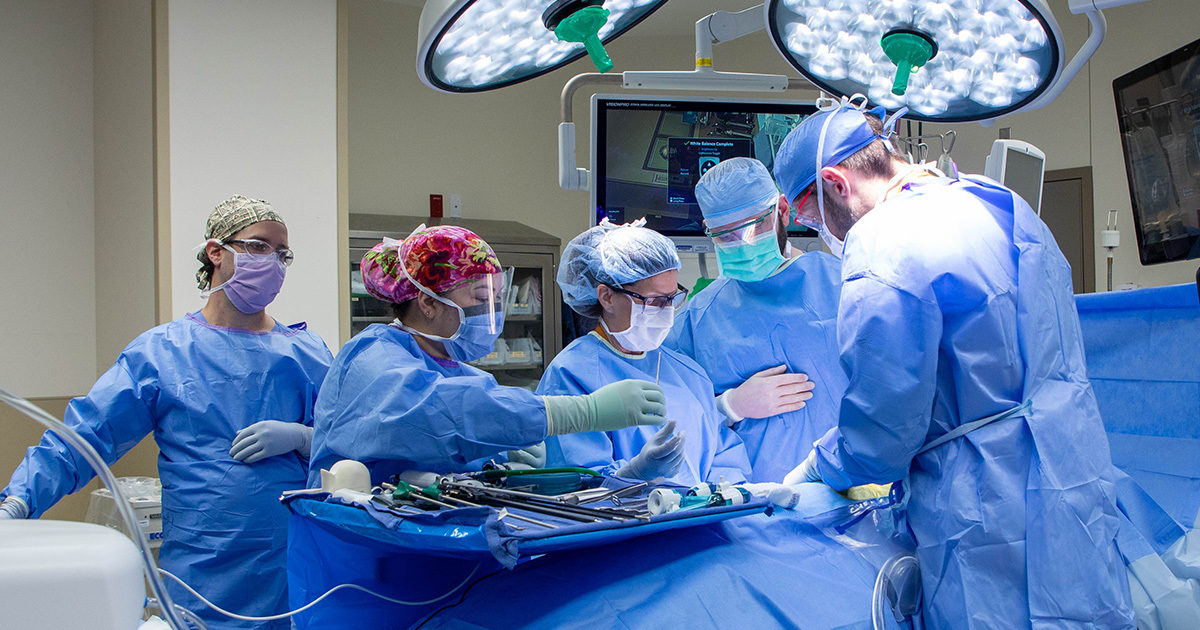
In a single week, the Abdominal Transplant Center, a clinical partnership between Ascension Seton and UT Health Austin, celebrated many “firsts” since opening late last fall. On Tuesday, February 22, 2022, the Abdominal Transplant Center care team, led by UT Health Austin abdominal transplant surgeon Nicole Turgeon, MD, FACS, who also serves as the Transplant Director for the Abdominal Transplant Center, performed its first living donor procurement and transplant surgery. 33-year-old Kayla Wright, a member of the Rainelli family, flew into Austin to donate one of her kidneys to 23-year-old Dom Rainelli.
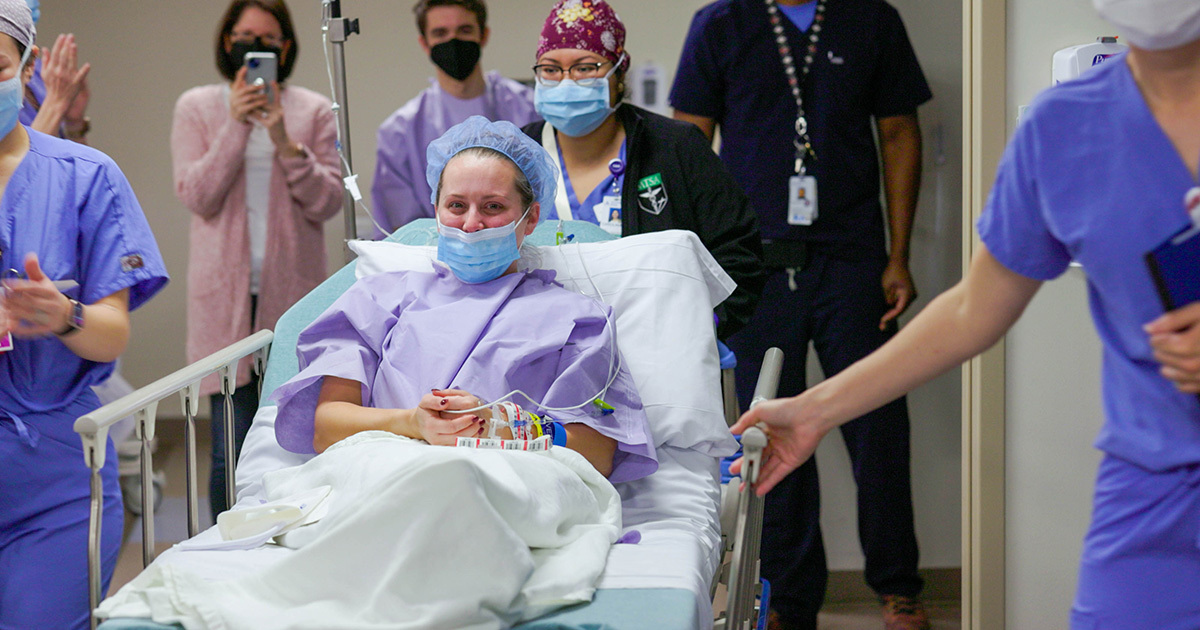
Read Dom’s story.
“He absolutely needed the transplant,” says Dr. Turgeon. “Dom had unknowingly been in kidney failure for several years. Having a kidney transplant before the point of needing dialysis is important because those patients experience better outcomes after transplantation than those on dialysis.”
Dom’s kidney transplant can last 7-20 years, meaning he will eventually need another donor. “One of goals of people in the transplant field is finding ways to extend the life of a kidney transplant,” shares Dr. Turgeon. “Some of the current anti-rejection medications can damage the kidneys long term.”
Learn more about the Kidney Transplant Program within the Abdominal Transplant Center.
<br>Two days later, on Thursday, February 24, 2022, the Abdominal Transplant Center care team was back in the operating room performing its first altruistic donor surgery. While Victoria Threadgould was the Abdominal Transplant Center’s second living kidney donor, she was the first to choose to donate one of her kidneys to a nondirected recipient through the National Kidney Registry, meaning Victoria did not know the person who would receive her kidney.
Read Victoria’s story.
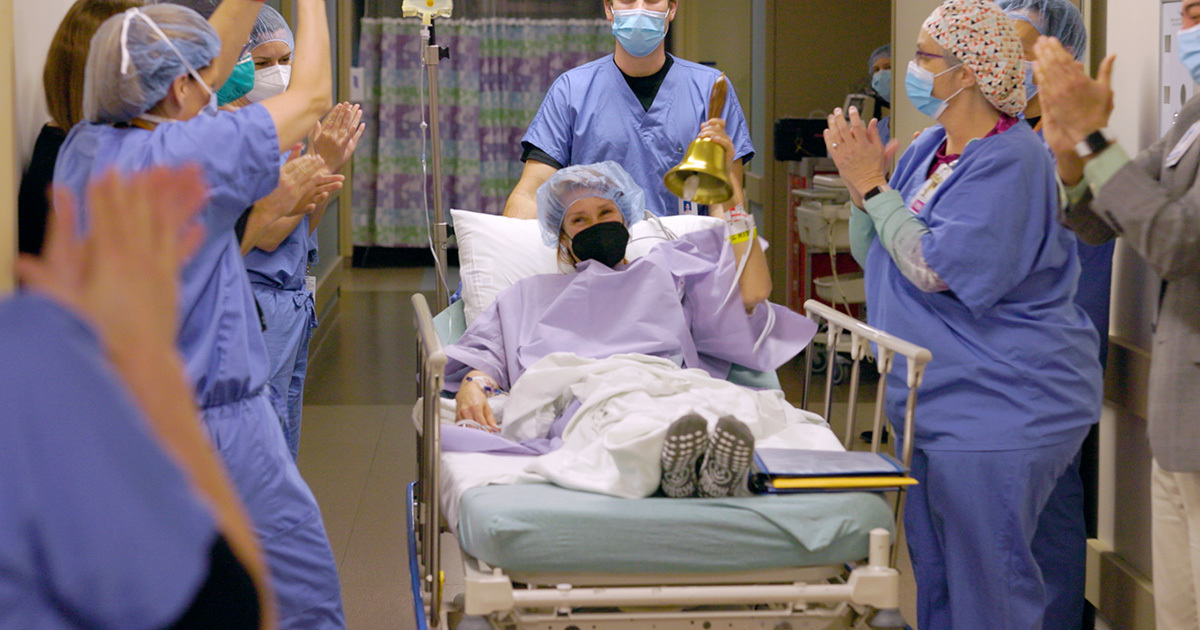
Victoria’s kidney was flown from Austin to New York and will be given to an incompatible donor and recipient pair that has been matched with another incompatible donor and recipient pair, which allows the kidneys to be exchanged between the pairs as a “swap.” As a result, living donors, such as Victoria, are able to provide two or more patients with healthy kidneys when previously no transplant would have been possible. The average wait time for a transplant through the paired donor kidney exchange program is approximately four months.
“By beginning this donation chain, Victoria’s donation will help a number of people,” says Dr. Turgeon. “The chain of donation will continue until a kidney eventually comes back to one of our patients here at the Abdominal Transplant Center. This can take anywhere from weeks to months.”
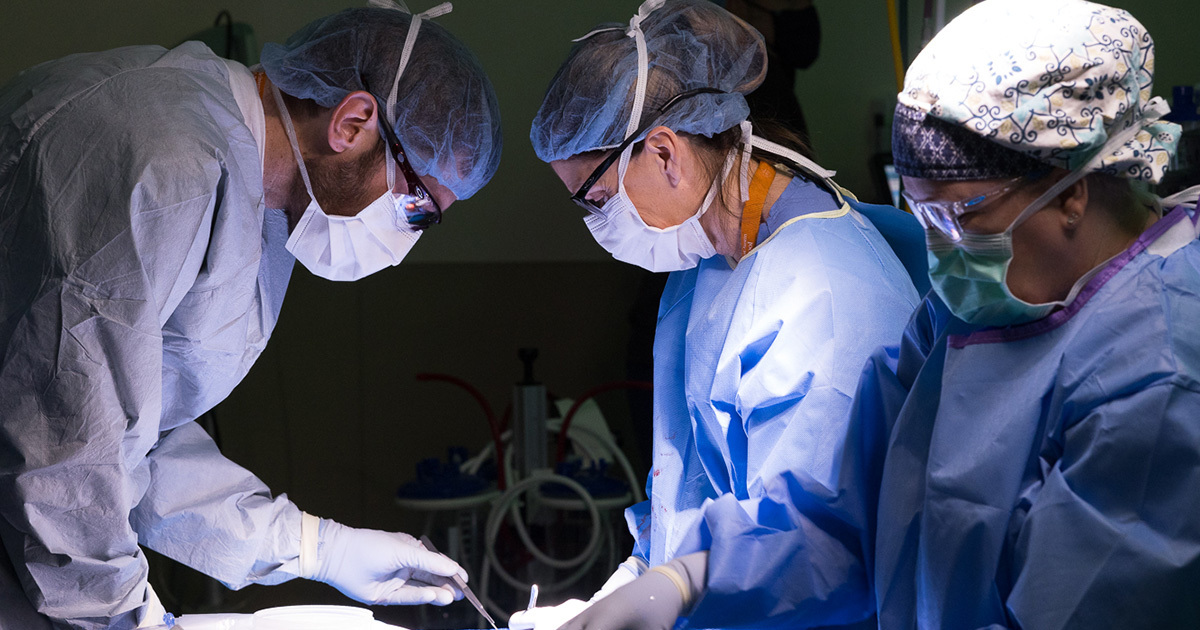
<br>Learn more about the Living Kidney Donor Program within the Abdominal Transplant Center.
<br>The Abdominal Transplant Center expects to perform 5-10 altruistic donor surgeries each year and hopes to work up its way up to 20. Currently, 14 people are on the Abdominal Transplant Center’s waitlist, 6 of whom are ready to undergo transplant surgery as soon as they receive a kidney offer.
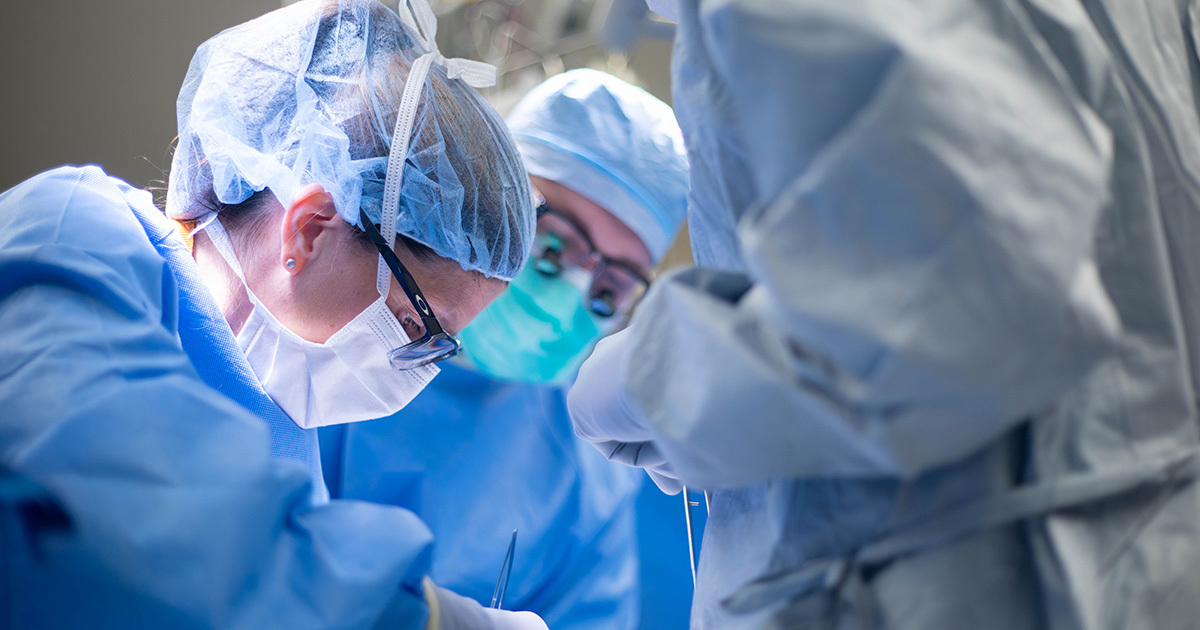
The Abdominal Transplant Center plans to launch its Pancreas Transplant Program and its Simultaneous Kidney and Pancreas Transplant Program later this year. The Abdominal Transplant Center hopes to develop a liver program in the next 3-5 years. Patients in need of a pancreas or liver transplant currently have to travel to San Antonio, Houston, or Dallas to receive care.
“Our program is growing faster than expected,” says Dr. Turgeon, who spent nearly 15 years performing abdominal transplant surgery at the Emory Transplant Center. The Abdominal Transplant Center expects to perform 15-20 kidney transplants in its first year and to grow to performing 75 transplants per year within its first five years and 150 transplants per year within its first 10 years.
<br>If you are interested in being considered for living kidney donation, please complete the online medical screening questionnaire.
For more information about the Abdominal Transplant Center or to make an appointment, please call 1-512-324-7930 or visit here.